#1802
Text

HM Sloop Investigator, 1802: etching by Geoffrey Ingleton, 1937
212 notes
·
View notes
Text

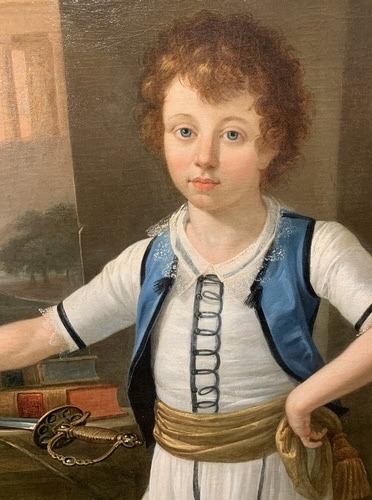

A full-length portrait of Nicholas I of Russia in 1802. By Pietro Labruzzi.
The bust on the right of the image is inscribed with ‘Alexander the first, of all of the Russian Empire’, referring to Nicholas’ elder brother Alexander I (Emperor of Russia 1801-1825).
Dressed in traditional Greek dress, Nicholas wears Greece’s blue and white national colours. His type of trousers, gilet and slippers were likely commissioned to commemorate the establishment of the oligarchic Septinsular Republic under nominal Russian and Ottoman sovereignty in the Ionian Islands in 1800.
(Drouot)
#Pietro Labruzzi#Tsar Nicholas I#Nicholas I#Nicholas I of Russia#Labruzzi#Russia#neoclassical#neoclassical art#portrait#Romanovs#auction#Drouot#neoclassicism#tsar Alexander I#19th century#1800s#1802#russian history#history#imperial Russia
35 notes
·
View notes
Text
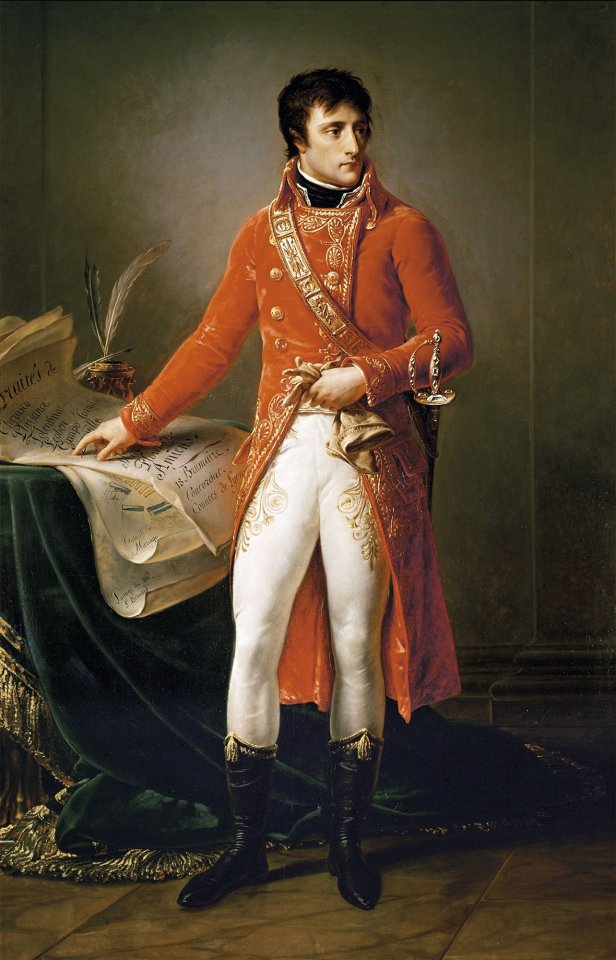
source: bishopsbox
Bonaparte as first consul (1802), by Antoine-Jean Gros. Musée de la Légion d’honneur, Paris.
Bonaparte como primer cónsul (1802), por Antoine-Jean Gros. Musée de la Légion d’honneur, París.
43 notes
·
View notes
Note
Heyy, have you ever wrote about Lafayette and Napoleon's feelings/contact with each other?
'cause even knowing some stuff about them, i think that there might be more for it than I know
Thankss <3
Dear Anon,
the relationship between La Fayette and Napoléon was a very complex and layered one, but I will try to give you detailed summary.
The first link between La Fayette and Napoléon was in January of 1791 when a young Napoléon mentioned La Fayette in a letter to his friend Matteo Buttafoco. The letter and commentary on it can be found in this post here.
The next serious connection between these two man came when Napoléon defeated the Austrians and the Treaty of Campo Formio was signed, thus freeing La Fayette and his fellow prisoners from Olmütz. La Fayette, duly thankful to Napoléon, wrote the General a note of thanks. Again, the letter itself and commentary can be found in this post here.
La Fayette spend the next years in exile and he and Napoléon had next to no real connection at the time. This all changed when La Fayette, due to the brilliant work of Adrienne, returned to France during Napoléon’s Coup d’État in 1799.
His name and the names of many of his family members were still on the list of émigrés so legally they could not return to France. When La Fayette did so anyway, Napoléon was not amused. He was eventually consoled by Adrienne and Napoléon eventually restored La Fayette’s citizenship in March of 1800.
La Fayette was banned from attending the memorial service for the American General George Washington who died on December 14, 1799. George Washington had been a close friend, confident and father figure for La Fayette. Despite all this, La Fayette’s and Napoléon’s relationship still was rather friendly. They actually had a certain respect for each other as Generals but especially Napoléon was from the start quite wary around the Marquis. La Fayette had been vastly popular in France and still was. His popularity had greatly suffered during the second half of the French Revolution but his time in prison and the actions of his wife had partly helped to restore it. La Fayette had no political ambitions when he returned to France and his popularity was still tarnished but he nevertheless could have posed a threat to Napoléon if he really, really would have wanted that. The two of them met a few times at social functions and also exchanged letters but their relationship deteriorated more and more with time. They were similar in one aspect though, they both longed for glory – but their approach was different.
Napoléon hoped to gain La Fayette’s support for his government but La Fayette refused to serve in the Senate and to become the French ambassador to his beloved America, although both positions were suggested to him through different sources. La Fayette was also offered to be made a member of the Legion of Honour. He again refused. He had no interest of being overly entangled with Napoléon. Although not being outspoken in public La Fayette would not keep his opinions for himself if somebody asked him about his opinions. Actually, there was no need asking him about his opinions, La Fayette was one of the most well-known men in France, everybody even remotely interested in politics knew his stance. There is a passage from a conversation Napoléon and La Fayette had in the summer of 1802:
‘I [Napoléon] must tell you, General Lafayette, and I see with regret that, by your manner of expressing yourself on the acts of the government you give to its enemies the weight of your name.’ Lafayette replied, ‘What better can I do? I live in retirement in the country, I avoid occasions for speaking; but whenever anyone comes to ask me whether your regime conforms to my ideas of liberty, I shall answer that it does not; for, General, I certainly wish to be prudent, but I shall not be false.’
Bayard Tuckermann, Life of General Lafayette; with a critical estimate of his character and public acts, Vol. 2, Low, London, 1889, p. 158.
La Fayette did not trust Napoléon and did not wish to be part of his government. La Fayette voted against the consulship for life and this decision was at least from Napoléon’s point of view the final nail in the coffin of their relationship. La Fayette explained to Napoléon himself in a letter from May 20, 1802:
General – When a man who is deeply impressed with a sense of the gratitude he owes you, and who is too ardent a lover of glory to be wholly indifferent to yours, connects his suffrage with conditional restrictions, those restrictions not only secure him from suspicion, but prove amply that no one will more gladly than himself behold in you the chief magistrate for life, of a free and independent republic.
Life of Lafayette: Including an Account of the Memorable Revolution of the Memorable Revolution of the Three Days of 1830, Light & Horton, Boston, 1835, pp. 1.
But La Fayette was still somewhat out of Napoléon’s reach. But his son, who joined the military in 1800, and his son-in-law, Louis de Lasteyrie, were not. Although both of them and especially Georges, distinguished themselves in battles, they were not promoted. Whenever a promotion for one of them was up for debate, it never came to pass. La Fayette’s son and son-in-law therefor left the army in September of 1807 – there was just no point in serving any longer.
During the 100 Days, Napoléon’s brief return to power after his exile on St. Helena and prior to his exile on Elba, La Fayette became outspoken once again. He had been elected to the Chamber of Representatives (not to be confused with the Chamber of Deputies; both were the lower chambers of the French Parliament but the Chamber of Deputies was active during the Bourbon Restoration, the Chamber of Representatives was only active during The Hundred Days) in 1814. He had previously argued that too little people in France were eligible to vote the members of the Chamber of Deputies that such a political body could never represent France. Anyway, La Fayette was pretty silent as a Representative until June 21, 1815, after Napoléon’s defeat at Waterloo. The Chamber meet early that day to discuss the general state of affairs. La Fayette rose and proposed the following:
Representatives! For the first time during many years you hear a voice, which the old friends of liberty will yet recognize. I rise to address you concerning the dangers to which the country is exposed. The sinister reports which have been circulated during the last two days, are unhappily confirmed. This is the moment to rally round the national colours—the Tricoloured Standard of 1788—the standard of liberty, equality, and public order. It is you alone who can now protect the country from foreign attacks, and internal dissensions. It is you alone who can secure the independence and the honour of France.
Permit a veteran in the sacred cause of liberty, in all times a stranger to the spirit of faction, to submit to you some resolutions which appear to him to be demanded by a sense of the public danger, and by the love of our country. They are such as, I feel persuaded, you will see the necessity of adopting:
I. The Chamber of Deputies declares that the independence of the nation is menaced.
II. The Chamber declares its sittings permanent. Any attempt to dissolve it, shall be considered high treason. Whosoever shall render himself culpable of such an attempt shall be considered a traitor to his country, and immediately treated as such.
III. The Army of the Line, and the National Guards, who have fought, and still fight, for the liberty, the independence, and the territory of France, have merited well of the country.
IV. The Minister of the Interior is invited to assemble the principal officers of the Parisian national Guard, in order to consult on the means of providing it with arms, and of completing this corps of citizens, whose tried patriotism and zeal offer a sure guarantee for the liberty, prosperity, and tranquillity of the capital, and for the inviolability of the national representatives.
V. The Ministers of War, of Foreign Affairs, of Police, and of the Interior are invited to repair immediately to the sittings of the Chamber.
Bayard Tuckermann, Life of General Lafayette; with a critical estimate of his character and public acts, Vol. 2, Low, London, 1889, pp. 190-193.
The resolution was soon adopted with the exception of the fourth paragraph. Please note that the exact wording of La Fayette’s little speech differs a little bit from translation to translation, but the gist is always the same. La Fayette more or less openly called for the abdication of the Emperor Napoléon. When Napoléon’s brother urged the Chamber to reconsider La Fayette answered him that (again, different sources translate slightly different):
Who shall dare to accuse the French nation of inconstancy to the Emperor Napoleon? That nation has followed his bloody footsteps through the sands of Egypt and through the wastes of Russia; over fifty fields of battle; in disaster as faithfully as victory; and it is for having thus devotedly followed him that we now mourn the blood of three millions of Frenchmen.
Life of Lafayette: Including an Account of the Memorable Revolution of the Memorable Revolution of the Three Days of 1830, Light & Horton, Boston, 1835, p. 114.
Yes, la Fayette could give quite a speech - if he wanted to. Other the next days, Napoléon was urged to abdicate (June 22, 1815) with the threat that the Chamber would otherwise abdicate for him. The Chamber selected a committee of fife men to meet with delegates of the allied forces for the allies had promised peace negotiations, provided Napoléon was not longer in power. One of these fife men was La Fayette. There are not too many letters from La Fayette about these events that I can show you, but here is an excerpt from a letter to Thomas Jefferson from October 10, 1815:
In your Letters of Last year, anterior to the first Abdication of Bonaparte, you Had Expressed a due Sense of that Character who Having it in His Power to Be a Blessing did prefer to Become a Curse to Mankind. His despotism and His follies Had made the Restoration of the Bourbons, notwithstanding foreign invasion, a popular Event—They Returned the Compliment. Their prejudiced mismanagement, the more Glaring improprieties of Privilege-men Gave Napoleon the Opportunity to Reappear as a Representative of the Revolution. Whatever may Have Been a few Subaltern Intrigues, the Great, the Efficacious Conspiracy in His Behalf may Be attributed to the Counter Revl[uti]onary party.
in those transactions I took No part altho’ I would Have Readily assisted in Opposing Napoleon Had Not the patriotic System me[t] the Same objections which Had Ruined the Constitutional throne of 92.
We then Have Seen the Imperial destroyer of french Liberty Reassuming a Republican Language, Bowing to [na]tional Sovereignty, allowing a free press, and altho’ Vindictive or Arbitrary acts too often Betray’d old Habits, persuading many patriots to Rejoice at His Conversion—Not So did I—But While I Shunned personal Communication with Him, I declared that, if a free Representation was Convened, I would Stand a Candidate—we were, my Son and myself elected.
at the Same time a million of foreign invaders were, in Concert with Lewis the 18t and the elder Branch of His family, Led Against Bonaparte, was it Said, against what and whom the Event Has proved—the defense of national independance and territory Became, of Course, our principal object. it was my opinion that Unanimity and vigor Could Better Be Roused By a popular than By the Imperial Government—The Majority of the Assembly and Army depended more on the General Ship of Napoleon altho’ His whole troops did little Exceed two Hundred thousand. So we all joined on that Line of Resistance. No impediment was thrown, Every Assistance was Given. Never did our Heroïc Army fight Better than at waterloo. a Stubborn Mistake of Bonaparte Lost the day. He deserted His Soldiers, and Determined to dissolve our Assembly, usurp dictatorial powers, prefering the chances of Confusion and involving destruction to those of firmness and patriotism. That part of the impending Evils was timely prevented. it might Have Been the Case with the other part, altho’ Coming upon us in a Storm, Had Not the old diplomacy in poland, Napoleon’s policy in Spain, the Spirit of pilnitz in 91, and of the Last Congress at vienna Been far Surpassed By the present Coalition.
inclosed you will find a few pieces Relative to our Late House of Representatives. their declaration of the 5t July 1815 Congenial with the principles of 1789 are an additional proof that if the french people Have deplorably Erred in the means they Have Steadily persevered in the primary object of the Revolution.
“Lafayette to Thomas Jefferson, 10 October 1815,” Founders Online, National Archives, [Original source: The Papers of Thomas Jefferson, Retirement Series, vol. 9, September 1815 to April 1816, ed. J. Jefferson Looney. Princeton: Princeton University Press, 2012, pp. 67–69.] (05/22/2023)
After Napoléon’s abdication, the relationship between him and La Fayette effectively ended safe for one important letter that I would like to show you. La Fayette had himself been a prisoner of war for several years and he had suffered under the conditions imposed upon him. When there was talk that the British mistreated Napoléon on Saint Helena, La Fayette wrote a letter to the American Secretary of the Treasury William H. Crawford in 1819 – and as before, the letter can be found in this post here.
I hope this answer is helpful to you and I hope you have/had a wonderful day!
#ask me anything#anon#marquis de lafayette#la fayette#napoleon bonaparte#napoléon#french revolution#french history#american history#history#letter#1815#1819#thomas jefferson#william h. crawford#founders online#george washington#1799#1800#1802#la fayette in prison#adrienne de lafayette#adrienne de noailles#georges de la fayette
73 notes
·
View notes
Text
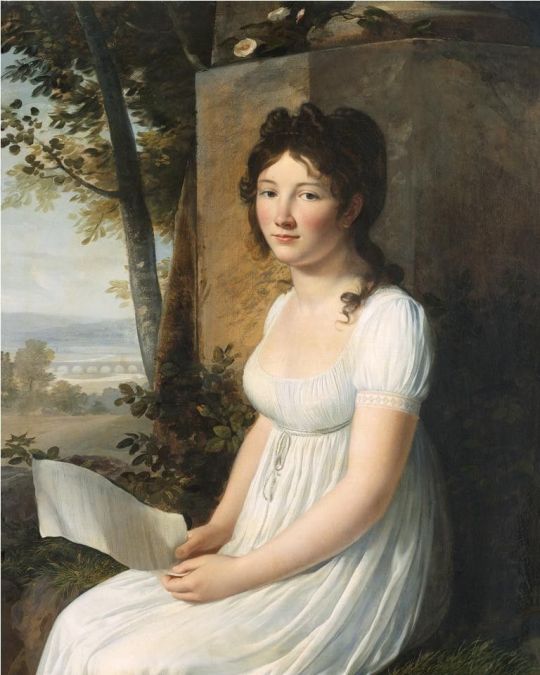
Portrait of a Young Woman, Louis-Andre-Gabriel Bouchet, 1800-05
#portrait of a young woman#Louis-andre-gabriel bouchet#bouchet#Louis andre gabriel bouchet#1800#1801#1802#1803#1804#1805#1800s#19th century#portrait#painting#art
29 notes
·
View notes
Text

Cupid Presenting a Rose to a Butterfly by Denis Antoine Chaudet. C 1802 - Louvre Museum, PARIS
#cupid#rose#butterfly#sculpture#by#denis antoine chaudet#1802#musée du louvre#louvre museum#paris france
93 notes
·
View notes
Photo

West and South Asia - AD 1802.
by u/Cyowari
62 notes
·
View notes
Photo

Journal des Dames et des Modes, Costume Parisien, 16 mars 1802, An 10, (371): Chapeau de Satin. Palatine en Cygne. Collection of the Rijksmuseum, Netherlands
Woman with a satin hat on her head. A 'palatine' of swan down around the neck. She wears a spencer trimmed with fur on a dotted dress. Further accessories: gloves, handkerchief, shoes with crossed straps and pointy noses. She holds up her dress with her right hand. The print is part of the fashion magazine Journal des Dames et des Modes, published by Pierre de la Mésangère, Paris, 1797-1839.
#Journal des Dames et des Modes#19th century#1800s#1802#18aughts#periodical#fashion#fashion plate#retouch#color#description#rijksmuseum#dress#palatine#spencer#dots#satin#Mésangère
38 notes
·
View notes
Text
Rob Hubbard, Matthew Simmonds (4-mat)
Entire Soundtrack (PC remake, various modes)
Jet-Set Willy (1984, 1997)
Software Projects
Note: This music's quality was reduced to 64 Kbps in order to fit onto the site's 10 MB file limit.
#music#Ludwig van Beethoven#Piano Sonata No. 14#Moonlight Sonata#1801#1802#Sheldon Harnick#Jerry Bock#If I Were a Rich Man#Fiddler on the Roof#1964#Edvard Grieg#In the Hall of the Mountain King#Peer Gynt#1875#probably more#Pot Keyboard Integrated Circuit#POKEY#Rob Hubbard#Manic Miner#1983#Jet Set Willy#1984#Software Projects#remake#remix#FastTracker 2#XM#Matthew Simmonds#4-mat
6 notes
·
View notes
Text
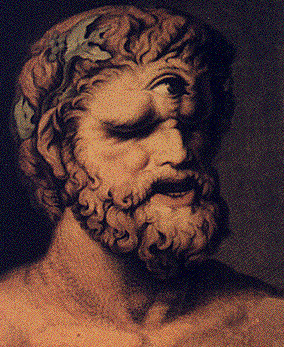
Johann Heinrich Wilhelm Tischbein’s 1802 portrait of Polyphemus.
#greek mythology#polyphemus#cyclopes#cyclops#1802#portrait art#Johann Heinrich Wilhelm Tischbein#18th century art
5 notes
·
View notes
Photo

1802 Tulips and Roses: Cabbage Rose, Two Tulips, a small Tortoiseshell Butterfly and yellow Meadow Ant. Watercolour on vellum, Signed and dated by Pierre Joseph Redouté (1759-1840).
#pierre joseph redouté#painting#tulips and roses#1802#pierre-joseph redouté#tulips#roses#watercolour on vellum#flower#1800s#1800#botanical art#botanical#botanical artist#floral art#floral artist#flower painter#botanical painter#flowers#1800s flower#1800s art
19 notes
·
View notes
Text
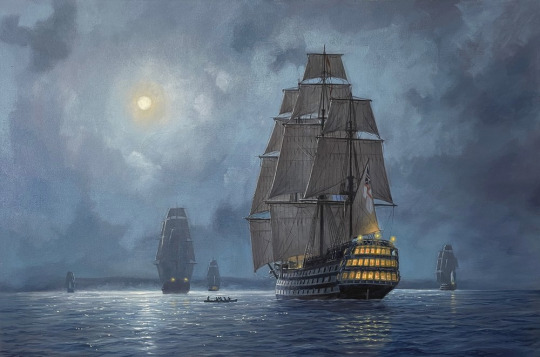
HMS Victory by moonlight, 1802, by Patrick O'Brien (1960-)
166 notes
·
View notes
Text
One of the instances of Napoleon saying he wanted to retire from public life:
“Yet more than once in the course of his career he declared that he would like to retire from public life, settle as a landowner in the country and satisfy himself with the function of a Justice of the Peace. ‘In three years’ time I shall retire from public affairs,’ he declared one evening in 1802, when as First Consul he had become effective dictator of France. ‘I will have an income of fifty thousand livres, and with my tastes that is more than I need. I will have a country estate, because Madame Bonaparte likes the country.’ After a moment he added that he would fulfil his civic duty in the locality as a Justice of the Peace. This usually brings a sarcastic smile to the lips of those who read these words. But they should not be dismissed out of hand, as there is much about Napoleon’s character to suggest that, given the chance, he would have enjoyed such a life—and suited it admirably.”
— Adam Zamoyski, Great Men and Small Ways
(Bold and italics by me)
#Adam zamoyski#Napoleon#napoleon bonaparte#napoleonic era#quote#quotes#quotes by Napoleon#Napoleon quotes#french history#history#first french empire#19th century#french empire#france#napoleonic#consul#1802#consulate#frev#french revolution#the consulate#1800s#zamoyski
25 notes
·
View notes
Text

In contrast with John’s alchemy session, I have but one prediction.
Rose is absolutely going to use the Grimoire.

The. Character. Ever.
Moving on.

Naturally, living beings can function as alchemy ingredients. This plush doesn’t seem alive, but swapping that ‘OR’ with an ‘AND’ might change that, if I’m understanding alchemy properly.

John’s Problem Sleuth hammer: LOCKED.
Rose’s Squid Pro Quo gushers: UNLOCKED.
Dave’s Comb Rave anime sword: LOCKED.
Jade’s Gambit Schema 8-ball: LOCKED.
Sepulchritude Progress: 25%.

You make a bottle of MAGNETIC WODKA.
Rose, you’re killing me here.
This isn’t an Exile messing with her head, or even a goofy reader command. She’s just on her own - and when she’s on her own, it’s Silly Rose Time.

That's more like it! It seems like it’s pretty easy to make supernatural items.
The yarn is in a higher price tier than the Wrinklefucker or the ghost gloves, so I imagine its magical properties are rather potent.

You make a pair of NEEDLEWANDS.
They crackle with the majyyk enyrjjies.
Yeah alright, miss ‘I’m not the Witch’.
Class aside, Rose does seem like the type to make good use of a wand. They’re traditionally rather versatile tools, and Rose is the inquisitive kind of Player who’d really experiment with their capabilities.
Plus, I doubt Seers are built for melee combat. As I said before, they probably want to be fighting at range.

The Needlewands are in the same tier as Fear No Anvil (John-Sized), and definitely shouldn’t be in the hands of a recently-entered Player. Mom’s grist windfall is doing work.

That's what I'm fucking talking about! It’s like Grimoirekind, but better!
The needles seem to shiver with the dark desires of THE DEEP ONE.
Rose is reading the Deep One’s books, wielding its weapons and dreaming on its moon. She’s about two steps away from summoning Oglogoth, which is the last thing we need.
Any sane adventurer would cast these instruments of the occult into the FURTHEST RING and forget they ever existed.
Anyway, let’s cut to Rose immediately equipping them.
101 notes
·
View notes
Photo

Venus Consoling Cupid Stung by a Bee, Benjamin West, 1802
#venus consoling cupid stung by a bee#Benjamin west#west#1802#1800s#19th century#neoclassical#painting#art
56 notes
·
View notes
Text
Philip Schuyler to Elizabeth Hamilton, Albany, [May 11, 1802]
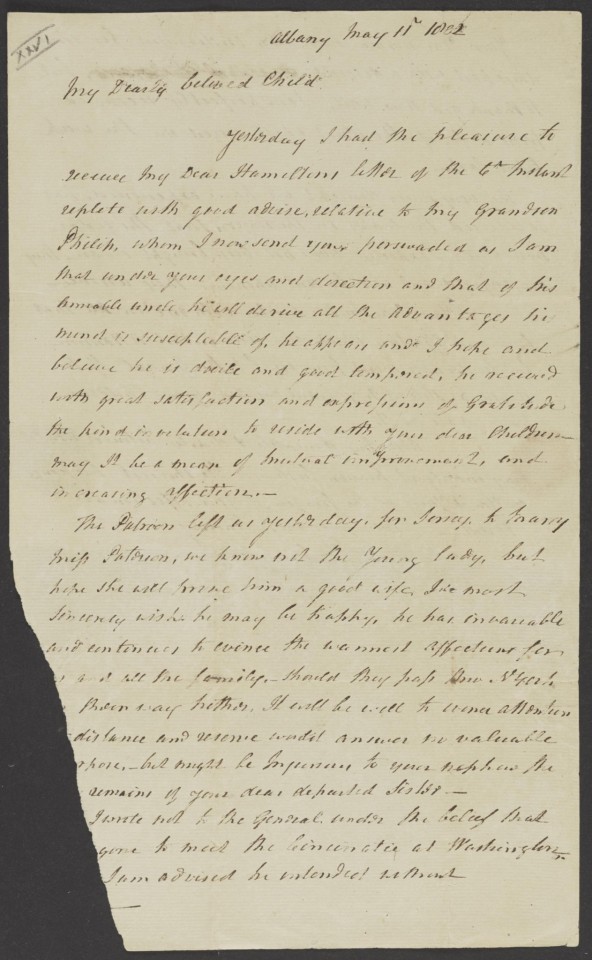
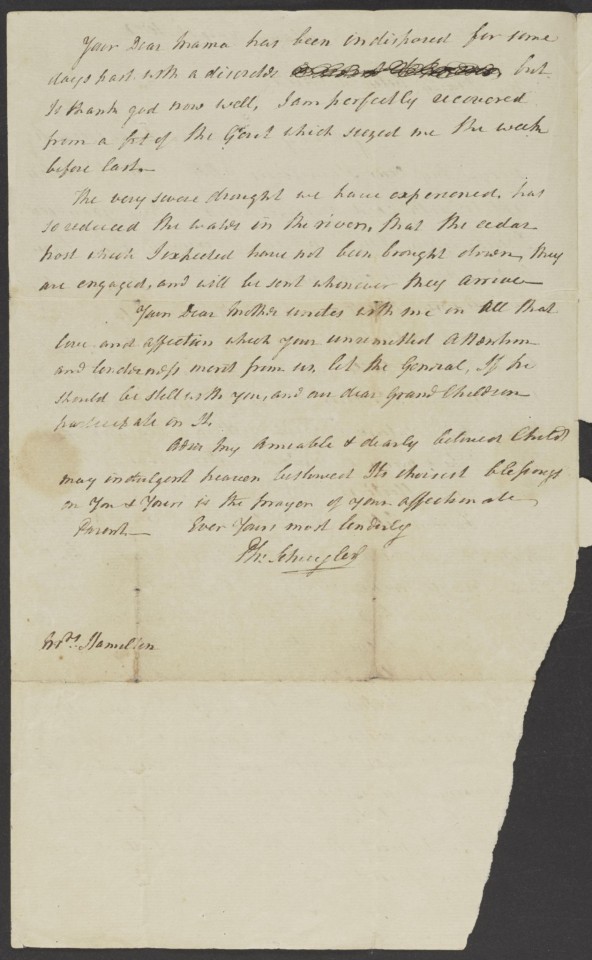
Albany May 11th 1802
My Dearly beloved child
yesterday I had the pleasure to receive my Dear Hamiltons letter of the 6th instant replete with good advise, relative to my grandson Philip, whom I now send you perswaded as I am that under your eyes and direction and that of his amiable uncle he will derive all the advantages his mind is susceptible of, he appears and I hope and believe he is docile and good tempered, he received with great satisfaction and expressions of gratitude the kind invitation to reside with your dear children may it be a mean of mutual improvement, and increasing affection.
The Patroon left us yesterday, for Jersey to marry Miss Paterson, we know not the young lady, but hope she will prove him a good wife, I do most sincerely wish he may be happy, he has invariable ___ and continues to evince the warmest affection for ___ and all the family, should they pass thru N York ___ their way hither, it will be well to evince attention ___ distance and reserve until answer no valuable ___ pose(?)._ but might be in general to your nephew the ___ remains of your dear departed sister
___ I write not to the General, under the belief that ___ gone to meet the Cincinnati at Washington. ___ I am advised he intended without
Your dear mama has been indisposed for some days past with a disorder (...) but I thank god now well. I am perfectly recovered from a fit of the gout which seized me the week before last.
The very severe drought we have experienced has so reduced the water in the river, that the cedar post which I expected have not been brought down, they are engaged, and will be sent whenever they arrive.
Your dear mother unites with me in all that love and affection which your unremitted attention and tenderness merit from us, let the General, if he should be still with you, and our dear grand children participate in it.
Adieu my amiable & dearly beloved child may indulgent heaven bestowed its choisest blessings on you & yours is the prayer of your affectionate parents.
Ever yours most tenderly
Ph. Schuyler
Mrs Hamilton
#elizabeth hamilton#elizabeth schuyler#philip schuyler#hamilton correspondence#schuyler correspondence#1802
21 notes
·
View notes